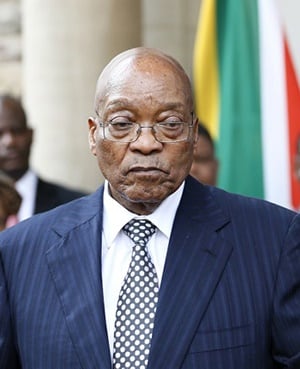
South Africa's fifth democratic parliament will go down in history as the most incompetent. It had to receive numerous instructions from the courts on how to conduct its business on key issues that fundamentally belong to the terrain of the legislature.
The courts don't enjoy encroaching into the legislative realm. It would be better to have a parliament that discharges its constitutional obligation as per the undertaking it makes to the people instead of being told what to do. It would relieve the courts of the role of babysitting the legislature.
But the courts have an obligation to intervene within the limits prescribed by the Constitution. The problem is that the courts have told Parliament to do what should ordinarily be its preoccupation.
This raises the question: why is Parliament, the elected representative of the people, failing to do its job? Why is it that the courts, run by unelected judges, seem to enjoy popular appeal as forums for resolution of disputes than Parliament?
Whenever there is a problem in society, people hardly think of petitioning Parliament to solve it. They rush to the courts. Ironically, opposition parties represented in Parliament often camp in courts to seek the wisdom of judges. The governing party itself is more likely to act on directives of a court than listen to an opposition MP or an MP who belongs to a "wrong faction" whose views on an issue is similar to that of a judge.
Most commentators have blamed this malaise on the proportional representation system that allows political parties to dictate to MPs. In terms of this thinking, the MPs have no option but to adhere to illegal demands of their party because they depend on it, and not voters, to keep their jobs.
While this weakness of the proportional representation system is valid and calls for a review of our electoral system, there is another possible explanation for the lethargic performance of Parliament: the fact that the requirement to be an MP is extremely low.
The Constitution says anyone who is qualified to vote is eligible to ben an MP except a person declared by a court to be of unsound mind (not to be confused with intellectual sharpness), an unrehabilitated insolvent and a convicted criminal sentenced to 12 months imprisonment without an option of a fine.
The requirements don't go far enough. Members of Parliament working on the rules for the impeachment of the president admitted that they didn't have the skill to do a proper impeachment inquiry. (The technical competencies of MPs were also tested during the Eskom inquiry.)
Some MPs have proposed the involvement of retired judges in the impeachment process – again underlying the extent to which society increasingly trust judges. Some have proposed the involvement of legal experts.
Yet, society is not tackling the elephant in the room: that a number of MPs are not suitable to perform the task that the Constitution enjoins them to. It's about time we had a national conversation about what kind of citizens should be MPs.
During elections, political parties are required to submit in advance names of candidate MPs to Parliament. The public should begin to take serious interests in the kind of characters on the lists submitted by political parties so that whenever there are problems in communities citizens should be confident that, if elected, those candidates will resolve the problems.
We need MPs who can stand up to party bosses and make them see the light. It should be prestigious to be an MP. Alongside party manifestos, candidates standing for election should be widely discussed and scrutinised.
It's embarrassing that MPs admit they don't have the skill among themselves to do what they Constitution demands of them to do: to conduct an inquiry on a constitutionally delinquent president and fire him.
The drafters of the Constitution were at fault to set the bar so low. This is not to say that Parliament is not entitled to use experts. But experts should only play an advisory role. MPs must be competent enough to fulfil their obligations.
Parliament must not wait for legal experts to tell them that if you have criteria designed to fire the president, it logically means that you must develop criteria to elect the president. Parliament must resolve the constitutional contradiction that we have a president with many powers and obligations but no specific attributes and skill are required.
The oath of office of the president requires him to swear to discharge his responsibilities with all his "strength", "talents" and to the best of his "knowledge" and "ability". But, what if he has no "talents" to speak of and his "strength" and "ability" on matters of governance are severely limited?
It doesn't make sense that the qualification to be the president is the same as that of an ordinary MP while their powers are substantially different. The Constitution says any Member of Parliament is eligible to elected president. Faith Muthambi is as eligible as Aaron Motsoaledi.
The Constitution should be amended so that the requirements to be a president are higher than those of an ordinary MP because, as the Constitutional Court said in the Nkandla judgement, only he carries the highest constitutional obligations and the nation pins its hopes on him. Based on our experience of Jacob Zuma, we know these obligations were not matched by skill, knowledge and character.
It's easy to blame Zuma for violating the Constitution and his oath of office. But we also have to be fair to him and ask ourselves the question: did he have the necessary personal attributes and skill to uphold the Constitution and his oath of office. A hindsight review of Zuma would reveal that from the beginning he had neither.
- Mkhabela is with the Department of Political Science at the University of South Africa.
Disclaimer: News24 encourages freedom of speech and the expression of diverse views. The views of columnists published on News24 are therefore their own and do not necessarily represent the views of News24.




 Publications
Publications
 Partners
Partners

























